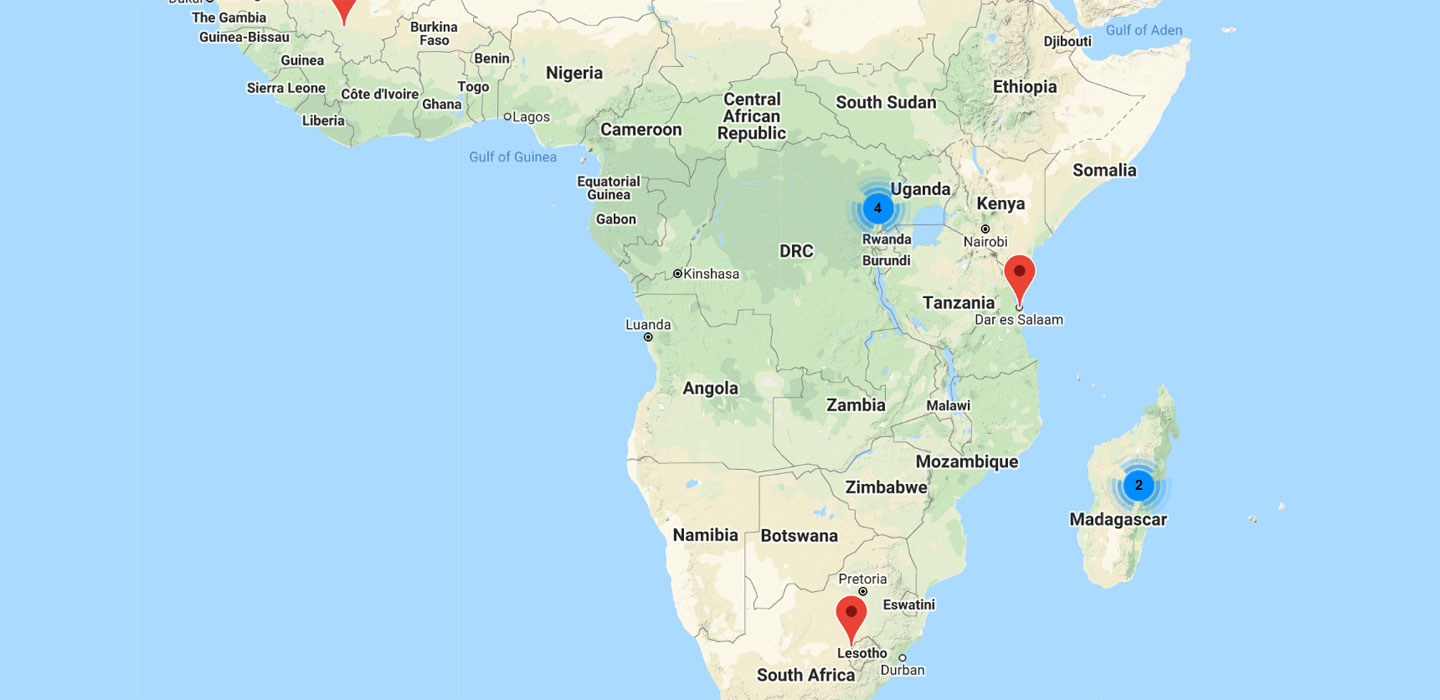New tool improves the visibility of farmers and rural producers’ organizations
IFAD Asset Request Portlet
Publicador de contenidos
New tool improves the visibility of farmers and rural producers’ organizations
Tiempo estimado de lectura: 2 minutos
Grassroots and international farmers’ and rural producers’ organizations play an invaluable role as representatives of the farming community.
They support small-scale farmers integrate into markets, promote the recognition of family farming and smallholder’ rights and shape policies for agriculture and sustainable development. They contribute to generating employment and social integration, reducing poverty and improving food security. Farmers’ organizations are also gaining knowledge and experience in evidencing the positive role of family farming and of smallholders in combating climate change. In particular, how their know-how can promote agroecology and adaptation approaches.
Despite these important roles, organizations and their small-scale producer and farmer members face many constraints that limit their access to profitable economic activities.
One major barrier is the lack of visibility, resulting in these organizations operating in isolation and preventing them from engaging in partnerships.
Recognizing that it is often a challenge to identify and obtain reliable data on existing organizations, the Farmers and Rural Producers’ Organizations Mapping (FO-MAPP) was created to fill this critical information gap.
FO-MAPP was developed on the needs expressed by farmers’ organizations themselves in the context of the Farmers’ Forum at IFAD and the campaign for the 2019-2028 United Nations Decade of Family Farming.
What is FO-MAPP?
FO-MAPP is an interactive online database that provides geo-referenced information on local smallholders', family farmers' and other rural producers’ organizations in Africa, Asia and the Pacific, and Latin America and the Caribbean. It is not exhaustive, but will be fed by organizations themselves. It enables them to be proactive in improving their visibility, and engage in markets and sustainable development partnerships.
Who can register in FO-MAPP?
To register in FO-MAPP organizations should be legally recognized, be membership-based, have a membership composed primarily of smallholders and family farmers, have a minimum of 500 individuals in their membership and operate at national and subnational levels.
How does it work?
Organizations can register in FO-MAPP free of charge by filling an online profile, available in English, French and Spanish. They can add information about their contact details, status, membership, geographical outreach, services provided and agricultural products. Photos, videos and documents about their activities, strategies and results achieved can be added to their profile.
An interactive map shows the location of organizations and links to the public profile pages. People can find organizations based on several criteria (e.g. geographical coverage, agricultural products) and explore possible synergies and collaborations. Through FO-MAPP:
- Development assistance agencies and practitioners can target their financial support and identify organizations to partner with in the design, implementation, monitoring and evaluation of development initiatives;
- Farming Organizations can improve knowledge-sharing among peers and support their engagement with one another;
- Local and national governments can better identify organizations, enabling public officials to approach them and foster collaboration;
- Private agri-food companies and financial services providers can better understand an organization’s expertise, services and products and explore the possibility of engaging in partnerships;
- Researchers and academia can better understand the positions of organizations within local and national contexts and on global policy issues, and to promote information exchange.
The FO-MAPP database was launched in 2019 with the support of IFAD and the World Rural Forum (WRF) and in partnership with Farmers' Organizations.
Fecha de publicación: 15 enero 2020